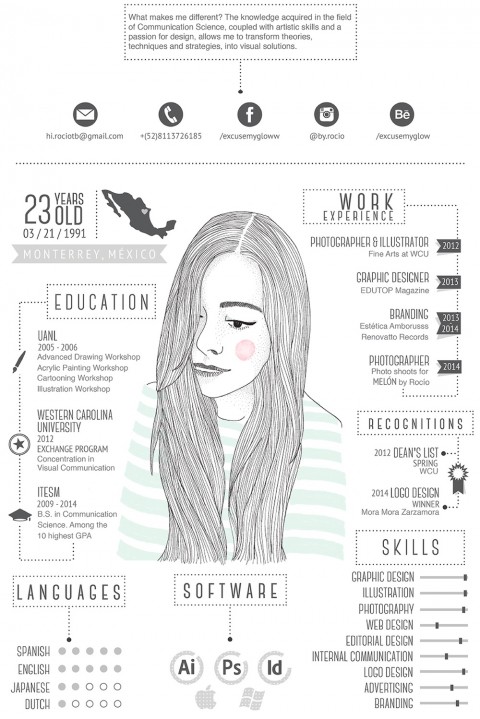While many readers have been successfully running their own design business for years, others are still relatively new to the profession, or to the prospect of going out on their own. Kristen Fischer’s book “When Talent Isn’t Enough” (Career Press) is the literary equivalent of a good friend sitting you down to talk about the facts of life as they apply to creatives hanging out a shingle for the very first time.
Chapter 1: It Takes More Than Talent
… Aligning Your Work With the Client’s Vision
Delivering positive customer service is obviously a big part of operating a business, but it goes beyond just being nice or spending that five extra minutes on the phone with a client in a pinch. If you know what your role is as a freelancer and strive to understand the client well, you will better grasp the vision of the project, which can help prevent sticky situations and result in more clients singing your praise.
Todd Henry, who founded the creative consulting firm Accidental Creative (www.accidentalcreative.com), believes that solo-pros need to take time to understand what their clients want in order to satisfy them.
As much as I think I understand what a client wants sometimes, I, too, have had situations when the customer isn’t happy with what I have produced. In that case, I have learned to take a “How can we improve this?” stance rather than the “Why don’t you like my work?” or “There must be something wrong with me!” approach.
When our work doesn’t match up to the client’s vision, we have to be willing to “let go of our pride and our ego,” Henry says. Otherwise, you could have an unsatisfied client on your hands that won’t use your services again or, even worse, tell others not to.
Letting the client know that the project is a collaborative process from the start is vital. That way, even if it’s not exactly what the client wanted, you can still team up to make it just right. Otherwise, they may not be open to revising the deliverable if needed, and insist that you did not do what they asked. During client consultations, I almost always let the client know about the revision process—namely, that I build a few rounds of revisions into the cost. Not only is it a selling point because it provides peace of mind that they won’t be stuck with something they don’t like; it lets the client know not to judge the first draft too harshly because I am available to help them make it sparkle.
Must-Read: “The Accidental Creative: How to Be Brilliant at a Moment’s Notice” by Todd Henry
Taming Your Inner Critic
Sometimes the clients aren’t the harsh ones—we are. This is another issue that can cause roadblocks if you want to run a strong creative business.
In the beginning of my copywriting career, I was the one who demanded perfection more than my clients. If my first attempt wasn’t flawless, I would be furious with myself. I knew revising was important, but I wanted every client to be picture-perfect happy with what I did. When they were not so pleased or suggested changes, I would go hard on myself and tell myself that I was wrong. Sure, sometimes I would be defensive and have to “take five” to calm myself down, but mostly I was completely too critical and harsh on myself. I didn’t know at the time that in not educating the client about the creative process, or believing in it myself, I was making work much more stressful than it needed to be.
So the work had to be edited—so what? Once I really understood revisions were necessary—and a great way to improve customer service—I put the concept into my sales pitch, started getting excited about pleasing clients, and received more positive feedback and referrals for going the extra mile to satisfy customers.
Not all clients will be pleased with what you do, no matter how many times you try to tweak the deliverable. When the client demands perfection out of the first draft or first stab at a concept, you have to reassure them that it is all right to refine it. This is the part of the project when you start to put your ego aside even if what they want is off the wall. Again, in educating a client up front that revisions are often necessary, you are less likely to have an irate client—and if you’ve had one, you’ll do anything to prevent it from happening again. Client relations is a big aspect of being business-savvy; it’s not just all about how to file taxes!
Are We All Egomaniacs?
George Coghill (www.coghillcartooning.com), a cartoon logo artist and designer from Ohio, believes solo-pros identify themselves as artists, so when criticism comes their way, it’s natural to take it personally. That’s why it’s important to realize that you are creating for someone else—not yourself. What you produce is subjective—some people will like it and others won’t—but if someone else is footing the bill for it, you have to heed their input.
“I think the successful artists are able to tame the ego,” Coghill notes. “It’s tough to take direction on your creativity, and if you let it get to you it can hurt.”
[Designer Stephanie Jones (www.cleverfinch.com)] admits that she relied more on her talent than her business acumen in the beginning. “I slowly learned more about how to defend my work and fine-tune my creative brief so I was coming closer to achieving the client’s goals and my own,” she explains. “Slowly shifting from relying solely on my talent to relying on my talent and business skills.”
Fusing Talent and Professionalism
What Jones has done is use her talent along with her business skills—a recipe for success.
“You don’t like the first draft of that brochure, dear client? What would you like to change? Let’s talk about it.” (Client relations.) “I do think you should keep this section because I believe it will be a help to accomplish your marketing goals.” (Negotiation.) “Okay, how do these changes work for you? Let me know what else I can do to help.” (Customer service.) “Your total is on this invoice. Thanks for your business!” (Accounting.) These are all pieces of business that are separate from your artistic talent yet must be incorporated if you want to flourish.
Once you embrace that you need to deliver customer service, and that being self-employed isn’t all about you, you’ll have a happier base of clients and peace of mind. Doing what you love will be enjoyable—as it should be.
Must-Read: “Breaking into Freelance Illustration: A Guide for Artists, Designers and Illustrators” by Holly DeWolf
Money Matters
Another reason that some creatives focus more on their craft than they do on business is because they do not believe money is important. And I realize that, because the majority of us choose to use our gifts because we’re truly happy when we create. I’m not out to make millions; I just want to make enough to live on and do what ignites my creative spirit.
But starving artists are a thing of the past. You don’t have to be poor to practice your creative talent. Plenty of copywriters I know make upward of six figures a year and I know artists that pull in enough to support their entire families on one income.
Perhaps most of us just want “enough to get by” because we think that’s all we’re worth, but that’s not true. Though you may not want to charge top-dollar as a rookie solo-pro, you can still charge—and earn—a competitive wage.
Some charge too much, some too little—and others don’t know what the heck they’re making. When I interviewed Jones, she said she knew plenty of designers working all day who think they are making hoards of money, but don’t know how much they earn. “They think they’re making money, but really they’re not. And it’s even more concerning that they’re clueless about it,” Jones notes.
When I think about freelancers and money, some main concepts come up: Creative professionals charge either too low or too high, don’t pay or properly complete taxes, and do not put the legal means in place to ensure they get paid. We are going to talk about all of these aspects in the coming chapters.
What types of financial goals should I set when launching a creative business?
“Initially to be able to at least come close to breaking even. Within a year or so to be making as much or more than working for someone else. If you can’t meet these goals realistically, the attractions of working for yourself versus working for someone else have to be very, very strong, or done out of necessity. Pay particular attention to your billable efficiency—i.e., the percentage of available hours that are actually billed to clients. Service businesses that average under 50% billable efficiency are seldom successful.”
—Cameron Foote, principal/editor, www.creativebusiness.com
Henry believes that it is difficult for freelancers to think in terms of money or want to deal with numbers because it is a challenge to turn their thoughts into value, or to value their contributions.
“The tendency is to underestimate the value you are bringing to the process,” he advises.
He says we emphasize our artistic nature instead of incorporating business principles because we tend to be more into creative ideas, not necessarily outcomes.
Think about it: Did you or are you thinking of starting your business primarily to make money? No, that’s secondary. The primary goal is to be able to do what you love, right? It was for me, too.
In that respect, it’s understandable that you are more focused on your talent when you start out. Perhaps you want to deliver good customer service and satisfy clients, so you focus solely on your talent, or what you can deliver. Who cares about a contract, right? You just want to be able to create a logo for this really cool coffee company, or draft an annual report for a big-name national vendor. Once you hear a few positive remarks about your work, it can feel tremendously rewarding. Then you think, “Hmm, maybe I am good at this. Maybe I can really do this! Maybe I really am a writer/photographer/designer/blogger.”
Look, there’s nothing wrong with appreciating your talent—or centering your energy on it. Once the honeymoon is over, however, you may realize that not all projects give you butterflies. That’s when you’re going to have to be very efficient with your time, and time is money.
This is really the ultimate goal, isn’t it? Not to spend half your day compiling invoices and the other half creating, but to get the business practices down pat so you can spend more time doing what you love.
It’s reasonable that you want to do what excites you; few people are brave enough to even entertain the idea of trying to make a business based on their talent. You will just have to make sure to make an effort to put as much into the business aspects as you will with the creative time. In time, maybe even the “business ickies” will be enjoyable for you, or at least they won’t take up too much time. (Hey, invoicing could sort of be fun if you think about all the money coming in—especially if you took the time to ink a contract and ensure you’ll actually get paid.) If not, you will have to simply accept that business practices have to be a part—but not all—of what you do as a creative professional.
Must-Read: “Creative, Inc.: The Ultimate Guide to Running a Successful Freelance Business” by Joy Deangdeelert Cho and Meg Mateo Ilasco
Make Business Part of Your Business
Elise Cripe knows how important revenue is. The blogger uses her Web site (www.eliseblaha.typepad.com) to promote her workshops and the sale of her paper goods, and also earns income from advertisements on the site. I frequent her blog a lot for visual inspiration and have always been impressed at how she ties her talents into making a living. Though she is artistic, she also puts a great deal of emphasis on being professional.
“I like to say that it doesn’t matter how smart or creative you are. If you can’t communicate your idea or market it well, it will never bring profits or rewards,” says the California-based blogger. “I think talent gets you started, but business know-how will keep you going.”
Cripe says it is vital to keep track of money. “Don’t underestimate the importance of tracking the money,” she says. “Save everything and keep notes on expenses. If numbers are not your thing, then consider hiring someone to handle that aspect of your business.” (See? You don’t have to be a QuickBooks whiz or understand what Section 179 of the Internal Revenue Code is.)
Cripe says her genuine love of writing helped her blog to grow into a revenue-generator. Although blogging is part of her full-time job, she says it is not the only way she brings in money. “I wear many different hats to generate my total income, but blogging is the glue that holds it all together,” adds Cripe, who draws a small amount of income from sidebar advertisements and affiliate program commissions. Her blog evolved into a vehicle to promote online workshops she teaches on paper crafting and Web design, and is also the online shop where she sells charming paper goods.
The blog has opened up numerous opportunities for her as well, as Cripe has secured consulting gigs and product design projects.
“All have been very unique experiences and something I am so grateful for,” she adds. “I have been blessed to turn my hobbies into something that generates income for my family.”
What skills must creative professionals possess innately—and which can be learned?
“The only innate ‘skill’ I believe one needs is a passion for what you are doing. Creativity and business can be learned through focused practice/repetition. One needs an overabundance of passion for what they are doing to keep them going through the inevitable rough business periods. If you aren’t in it completely, it will be very easy to be discouraged and the business will eventually suffer.”
—George Coghill, cartoon logo artist/designer (www.coghillcartooning.com)
…………

Reprinted, with permission of the publisher, from WHEN TALENT ISN’T ENOUGH © 2013 Kristen Fischer. Published by Career Press, Pompton Plains, NJ. 800-227-3371. All rights reserved.












